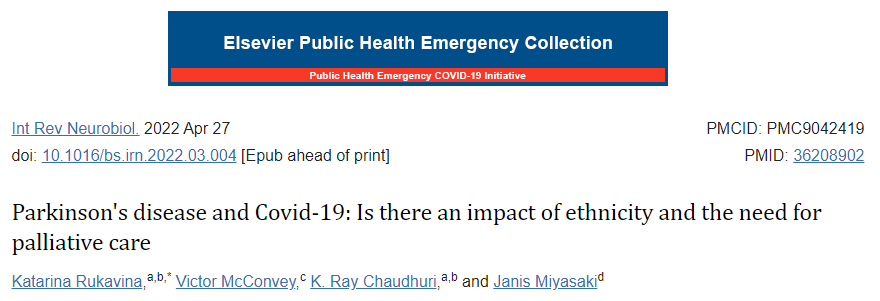Under the traditional models of care for People with Parkinson’s Disease (PD, PwP), many of their needs remain unmet and a substantial burden of motor and non-motor symptoms they experience may not be tackled sufficiently. An introduction of palliative care (PC) interventions early in the course of PD offers profound benefits: it may improve quality of life of patients, their families and caregivers through the prevention and relief of medical symptoms, while, at the same time, emphasizing their emotional needs and spiritual wellbeing, establishing goals of care, and engaging in the advance care planning (ACP).
The ongoing Coronavirus Disease 2019 (Covid-19) pandemic poses an unprecedented set of challenges for PwP and has in many ways (both directly and indirectly) magnified their suffering, thus rapidly raising the demand for PC interventions. Covid-19, as well as the repercussions of prolonged mobility restrictions and limited health-care access might exacerbate the severity of PD motor symptoms and interact negatively with a range of non-motor symptoms, with a detrimental effect on quality of life. Greater motor disability, higher amount of levodopa-induced motor fluctuations with an increased daily off-time, fatigue, anxiety, depression, sleep disturbances, pain and worsening of cognitive complaints might dominate the clinical presentation in PwP during the Covid-19 pandemic, alongside raising psychological and spiritual concerns and anticipatory grief.
Here, we aim to provide a foundation for pragmatic and clinically orientated PC approach to improve quality of life and relieve suffering of PwP in the context of the current, ongoing Covid-19 pandemic.


